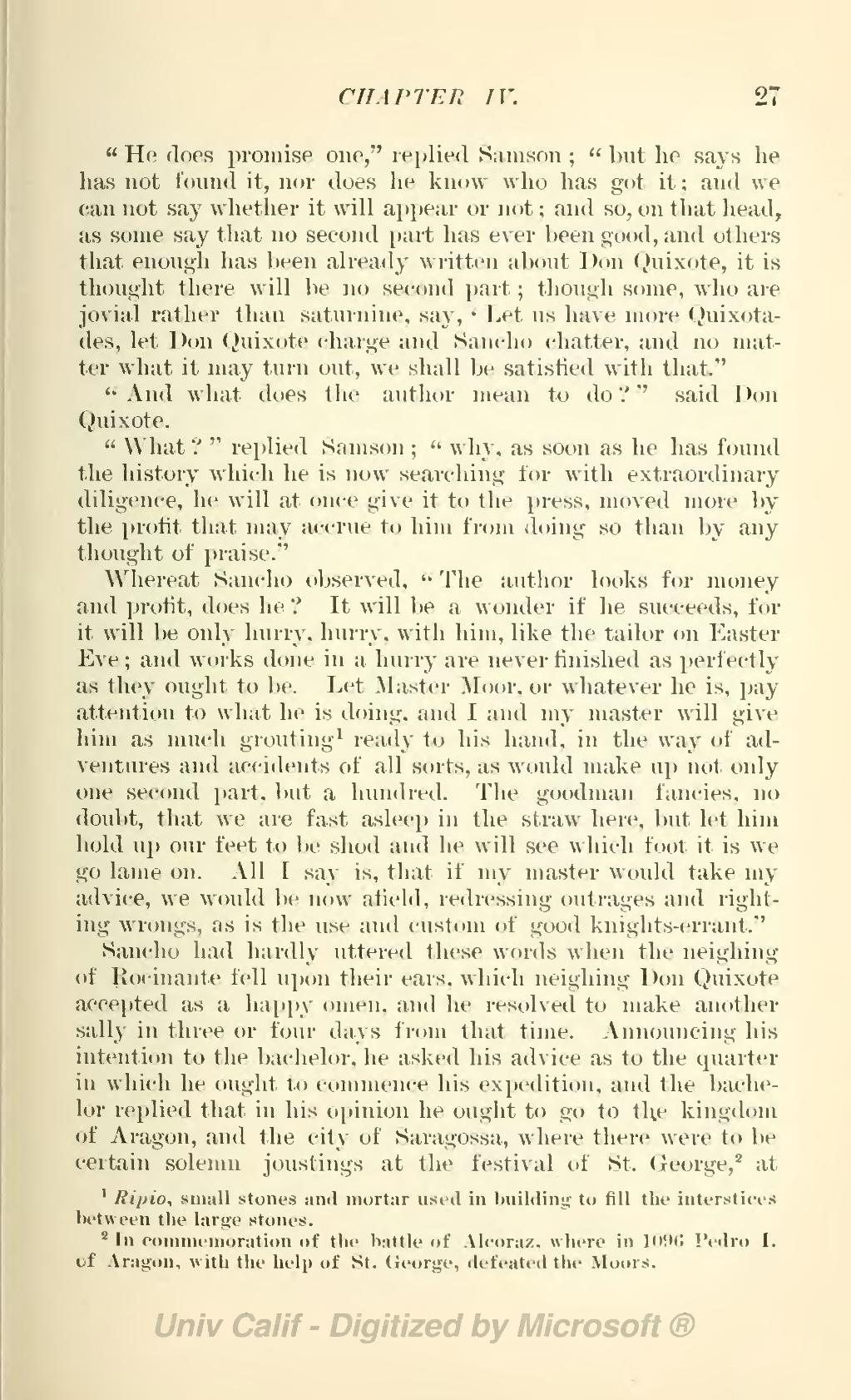" He does promise one," replied Samson; " but he says he has not found it, nor does he know who has got it; and we can not say whether it will appear or not; and so, on that head, as some say that no second part has ever been good, and others that enough has been already written about Don Quixote, it is thought there will be no second part; though some, who are jovial rather than saturnine, say, ' Let us have more Quixotades, let Don Quixote charge and Sancho chatter, and no matter what it may turn out, we shall be satisfied with that."
" And what does the author mean to do? " said Don Quixote.
" What ? " replied Samson; " why, as soon as he has found the history which he is now searching for with extraordinary diligence, he will at once give it to the press, moved more by the profit that may accrue to him from doing so than by any thought of praise."
Whereat Sancho observed, " The author looks for money and profit, does he? It will be a wonder if he succeeds, for it will be only hurry, hurry, with him, like the tailor on Easter Eve; and works done in a hurry are never finished as perfectly as they ought to be. Let Master Moor, or whatever he is, pay attention to what he is doing, and I and my master will give him as much grouting[1] ready to his hand, in the way of adventures and accidents of all sorts, as would make up not only one second part, but a hundred. The goodman fancies, no doubt, that we are fast asleep in the straw here, but let him hold up our feet to be shod and he will see which foot it is we go lame on. All I say is, that if my master would take my advice, we would be now afield, redressing outrages and righting wrongs, as is the use and custom of good knights-errant."
Sancho had hardly uttered these words when the neighing of Rocinante fell upon their ears, which neighing Don Quixote accepted as a happy omen, and he resolved to make another sally in three or four days from that time. Announcing his intention to the bachelor, he asked his advice as to the quarter in which he ought to commence his expedition, and the bachelor replied that in his opinion he ought to go to the kingdom of Aragon, and the city of Saragossa, where there were to be certain solemn joustings at the festival of St. George,[2] at
- ↑ Ripio, small stones and mortar used in building to fill the interstices between the large stones.
- ↑ In commemoration of the battle of Alcoraz. where in 1090 Pedro I. of Aragon, with the help of St. George, defeated the Moors.In commemoration of the battle of Alcoraz. where in 1090 Pedro I. of Aragon, with the help of St. George, defeated the Moors.
